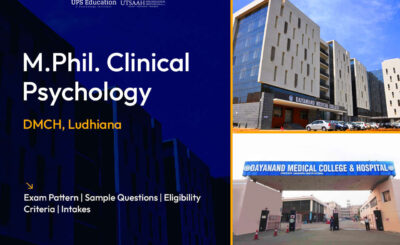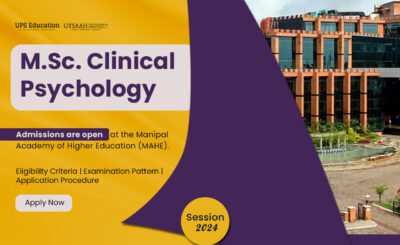 Arvind Kumar Otta, P. No: JMI7654, December 16Play is important to childhood development as well as children learn about shapes, colors, cause and effect and themselves. In cognitive thinking, play helps the child learn social and psycho-motor skills. Play consists of those activities performed for self amusement that have behavioral,social, and psycho-motor rewards. It is a way of communicating joy, fear , sorrow, and anxiety . Early 2000s children of all ages and from every socioeconomic background often prefer television, computers, and battery-operated toys to self-directed, imaginative, and creative play. This tendency leaves children developmentally deprived, because imaginative and fantasy play allows children to explore their world and express their inner thoughts and feelings, hopes and fears, likes and dislikes. Through play, decisions are made without penalty or fear of fail. Play allows children to gain control of their thoughts, feelings, actions, and helps them achieve self-confidence.Play takes different forms for different children, and its definition entails many aspects. Play is the direct opposite of work; it is frivolous. It provides freedom and invites the impulse to engage in foolishness. Yet it provides a means for ego development and a process by which social skills and physical skills develop as well.Play with imagination and fantasy is the child’s natural medium of self-expression and one that gives cues about the child’s conscious and unconscious states. In play therapy, clinicians employ various techniques designed to reveal the child’s psychological and social development. Clinician-directed play therapy is, therefore, not naturally self-directed play, but play designed by a professional to facilitate understanding of the child and the child’s healing process.
Arvind Kumar Otta, P. No: JMI7654, December 16Play is important to childhood development as well as children learn about shapes, colors, cause and effect and themselves. In cognitive thinking, play helps the child learn social and psycho-motor skills. Play consists of those activities performed for self amusement that have behavioral,social, and psycho-motor rewards. It is a way of communicating joy, fear , sorrow, and anxiety . Early 2000s children of all ages and from every socioeconomic background often prefer television, computers, and battery-operated toys to self-directed, imaginative, and creative play. This tendency leaves children developmentally deprived, because imaginative and fantasy play allows children to explore their world and express their inner thoughts and feelings, hopes and fears, likes and dislikes. Through play, decisions are made without penalty or fear of fail. Play allows children to gain control of their thoughts, feelings, actions, and helps them achieve self-confidence.Play takes different forms for different children, and its definition entails many aspects. Play is the direct opposite of work; it is frivolous. It provides freedom and invites the impulse to engage in foolishness. Yet it provides a means for ego development and a process by which social skills and physical skills develop as well.Play with imagination and fantasy is the child’s natural medium of self-expression and one that gives cues about the child’s conscious and unconscious states. In play therapy, clinicians employ various techniques designed to reveal the child’s psychological and social development. Clinician-directed play therapy is, therefore, not naturally self-directed play, but play designed by a professional to facilitate understanding of the child and the child’s healing process.
Categories of play
Some specific categories of play are as follows:
- Physical play: When children run, jump, and play games such as chase, hide-and-seek, and tag, they engage in physical play. This play has a social nature because it involves other children. It also provides exercise , which is essential for normal development.
- Expressive play: Certain forms of play give children opportunities to express feelings by engaging with materials. Materials used in expressive play include tempera paints, fingerpaints, watercolors, crayons, colored pencils and markers, and drawing paper; clay, water, and sponges; beanbags, pounding benches, punching bags, and rhythm instruments; and shaving cream, pudding, and gelatin. Parents can take an active role in expressive play by using the materials alongside the child.
- Dramatic play: Children act out situations they suspect may happen to them, that they are fearful will happen, or that they have witnessed. Dramatic play can be either spontaneous or guided and may be therapeutic for children in the hospital.
Functions of play
- PHYSICAL DEVELOPMENT Play aids in developing both fine and gross motor skills . Children repeat certain body movements purely for pleasure, and these movements develop body control. For example, an infant will first hit at a toy, then will try to grasp it, and eventually will be able to pick it up. Next, the infant will shake the rattle or perhaps bring it to the mouth. In these ways, the infant moves from simple to more complex gestures. Because play often involves physical activity, it is closely related to the development and refinement of children’s gross and fine motor skills and their body awareness. As children vigorously and joyfully use their bodies in physical exercise, they simultaneously refine and develop skills that enable them to feel confident, secure and self-assured. In societies where children experience pressure to succeed in all areas, confidence and competence are essential (Berk, 2002; Fromberg, 2002; Frost et al., 2001; Holmes & Geiger, 2002; McCune & Zanes, 2001; Murata & Maeda, 2002; Santrock, 2003).
- EMOTIONAL DEVELOPMENT Children who are anxious may be helped by role playing. Role playing is a way of coping with emotional conflict. Children may escape through play into a fantasy world in order to make sense out of the real one. Also, a child’s self-awareness deepens as he explores an event through role-playing or symbolic play.When a parent or sibling plays a board game with a child, shares a bike ride, plays baseball, or reads a story, the child learns self-importance. The child’s self-esteem gets a boost. Parents send positive messages to their child when they communicate pleasure in providing him or her with daily care. From these early interactions, children develop a vision of the world and gain a sense of their place in it.
- COGNITIVE DEVELOPMENT Children gain knowledge through their play. They exercise their abilities to think, remember, and solve problems. They develop cognitively as they have a chance to test their beliefs about the world.Children increase their problem-solving abilities through games and puzzles. Children involved in make-believe play can stimulate several types of learning. Language is strengthened as the children model others and organize their thoughts to communicate. Children playing house create elaborate narratives concerning their roles and the nature of daily living.Evidence also suggests a strong relationship between play and cognitive development. Studies indicate a positive relationship between play and student learning (Kumar & Harizuka, 1998; Lieberman, 1977). They identify improvements to attention, planning skills, and attitudes (McCune & Zanes, 2001; Smilansky & Shefatya, 1990; Sylva, Bruner, & Genova, 1976); creativity and divergent thinking (Dansky, 1980; Holmes & Geiger, 2002; Pepler, 1982; Sutton-Smith, 1997); perspective-taking (Burns & Brainerd, 1979); memory(Jensen, 1999, 2000; Saltz, Dixon, & Johnson, 1977); and language development (Clawson, 2002; Creasey, Jarvis, & Berk, 1998; Gardner, 1993; Howes, Droege, & Matheson, 1994).Children also increase their understanding of size, shape, and texture through play. They begin to understand relationships as they try to put a square object in a round opening or a large object in a small space. Books, videos, and educational toys that show pictures and matching words also increase a child’s vocabulary while increasing the child’s concept of the world.
- SOCIAL DEVELOPMENT A newborn cannot distinguish itself from others and is completely self-absorbed. As the infant begins to play with others and with objects, a realization of self as separate from others begins to develop. The infant begins to experience joy from contact with others and engages in behavior that involves others. The infant discovers that when he coos or laughs, mother coos back. The child soon expects this response and repeats it for fun, playing with his mother.Social skills are learned in the give and take of play. Verbal communication and body language, safety and danger, freedom and boundaries, cooperation and teamwork: all are discovered and practiced repeatedly during infant and childhood play. We continue to refine these skills in adulthood through play and playful communication.As children grow, they enjoy playful interaction with other children. Children learn about boundaries, taking turns, teamwork, and competition. Children also learn to negotiate with different personalities and the feelings associated with winning and losing. They learn to share, wait, and be patient.As social organisms, humans have a basic need to belong to and feel part of a group and to learn how to live and work in groups with different compositions and for different purposes. Play serves several functions in satisfying these needs and developing these social and emotional life skills. For example, children of all ages need to be socialized as contributing members of their respective cultures. Numerous studies (Creasey, Jarvis, & Berk, 1998; Erikson, 1963; Goleman, 1995; Piaget, 1962; Rubin & Howe, 1986; Rubin, Maioni, & Hormung, 1976; Rubin, Watson, & Jambor, 1978; Sutton-Smith, 1997; Vygotsky, 1978) indicate that play with others gives children the opportunity to match their behavior with others and to take into account viewpoints that differ from their own. Thus, play provides the rich experience children need to learn social skills.
- MORAL DEVELOPMENT When children engage in play with their peers and families, they begin to learn some behaviors are acceptable while others are unacceptable. Parents start these lessons early in the child’s life by teaching the child to control aggressive behavior . Parents can develop morals while reading to children by stressing the moral implications in stories. Children can identify with the moral fictional characters without assuming their roles. With peers they quickly learn that taking turns is rewarding and cheating is not. Group play helps the child appreciate teamwork and share and respect others’ feelings. The child learns how to be kind and charitable to others.:Arvind Kumar Otta, P. No: JMI7654, December 16









Thankfulness to my father who informed me concerning this weblog, this weblog is truly remarkable.
thanks for share!
try to publish frequently, i will be very pleased.
awesome post for read…i hope everyone enjoy.
hello my friend. can you provide more information on this?
maybe if you write more about this subject, i will understand it clearer.
congratulations my friend, your website is awesome, i really appreciate coming here to see what you have.
pretty good post. i just stumbled upon your blog and wanted to say that i have really enjoyed reading your blog posts.
this is really an awesome post. the story is cool. i accept it as a story.
this is very nice one and gives in depth information. i think it will be helpful. thank you very much for that extraordinarily first class editorial! keep up the good work.
i am happy with this information, but i need more information, so please update more stuff thank you.
nice job, another great example of how simplicity makes things prettier. this post is absolutely good.
i think to write in blogs, you have to be very focused on what is the main subject and the rest comes casually.
I really enjoyed your article. That is nice when you read something that is not only informative but entertaining. Outstanding.
thanks keep posting for more articles and more information thanks a lot. =)
You must join in a contest very first of the greatest blogs on the internet. I will recommend this web website!
Spot lets start on this write-up, I truly think this fabulous website requirements considerably more consideration. I’ll apt to be again to see additional, thank you for that information.
Nice article, I just found it, simple but it has some good that made my day. thanks! =)
Great post, I concur completely and appreciate the time you took to write it, nice!
thanks keep posting for more articles and more information thanks a lot. =)
We’re a group of volunteers and opening a new scheme in our community. Your website offered us with valuable info to work on. You have done an impressive job and our entire community will be grateful to you.
There are certainly plenty of particulars like that to take into consideration. That may be a great point to bring up. I provide the thoughts above as basic inspiration however clearly there are questions like the one you deliver up the place an important factor might be working in honest good faith. I don?t know if finest practices have emerged round things like that, however I’m positive that your job is clearly recognized as a fair game. Each girls and boys feel the influence of only a moment’s pleasure, for the rest of their lives.
Thanks for a tremendous submit, would study your others content. thank you your ideas within this, I experienced a trifle struck by this text. Thanks again! You make a good aspect. Portrays natures best by the excellent data here. I feel that in case a greater number of people thought of it like that, they’d have a very better time have the hold ofing the situation.
hey your blog design is very nice, clean and fresh and with updated content, make people feel peace and I always like browsing your site.
Wedding planning